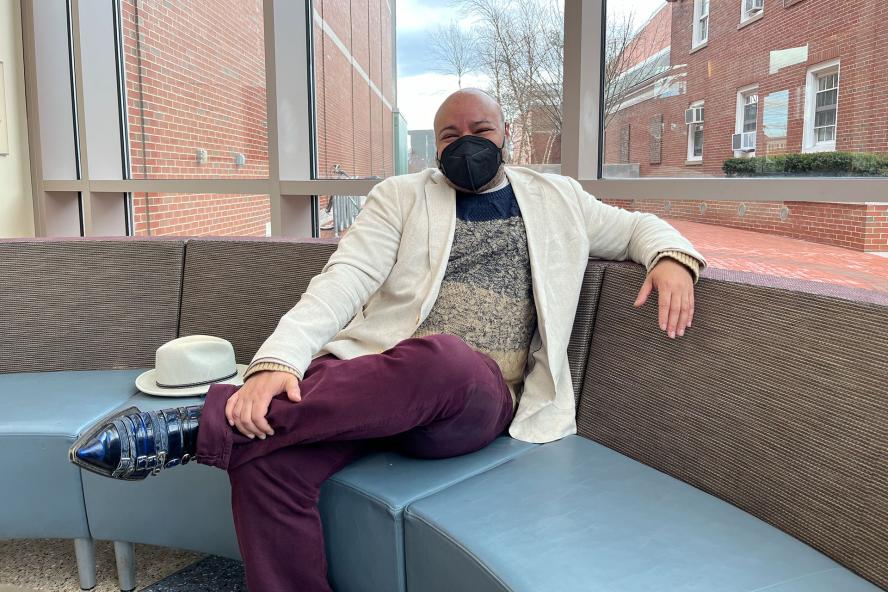Faculty Spotlight: Stephan Pennington

How did you find your area of focus within music?
I have always been interested in popular music, so studying it seemed like an obvious thing to do once I decided to get a Ph.D. in the academic study of music.
How did you find yourself at Tufts? How many years have you been here?
Academics don't tend to get to choose where we work. Rather, if we are lucky, we are chosen by an institution. I was lucky enough to be chosen by Tufts to work here. I have been here for 15 years.
What classes do you teach at Tufts?
I teach a wide variety of courses and develop new ones regularly. Since I've been here, I've taught: History of African American Music; History of Rock'n'Roll; Queer Pop; American Music; Black Divas; Music of the International Jazz Age; Popular Music Research and Discourse; The Cultural Politics of 1960s Spies in Music and Media; Introduction to Music Research; Race, Gender, Sexuality, and the Voice; 1960s Soul; Ludomusicology.
What projects are you working on at the moment?
I am currently working on a number of projects that cover a wide variety of topics from Transgender Vocality across a century to the persistence of Enlightenment racism in current musicological culture.
How has your field changed during the course of your research?
When I began my studies, I would not uncommonly see scholars post in our academic society's email lists that they would never hire anyone who specialized in popular music studies because one could never be sure a pop music scholar knew how to read music or knew anything about real music at all. I would also regularly hear colleagues say that popular music wasn't really worthy of study. While many people still hold these views, I think many departments now recognize the economic benefit of having at least one person who studies non-Classical music. I find that departments are more willing to include different musics, even if they are less willing to decenter Western Art Music.
What methods do you use for your work?
I am a Critical Musicologist, so I combine critical and cultural theory with historical research, music analysis, and reader response theories. I also incorporate, in a way that most people wouldn't notice, the military intelligence analytical training I received in the Army.
Are you involved in performance, teaching, or scholarship outside of Tufts? Do you play any additional instruments or sing?
Yes, I volunteer to teach Music History to marginalized high school students in Toronto every summer and regularly participate in public scholarship, from sensitivity consulting to participation in documentaries or interviews with news outlets. I also perform and compose here and there.
What are your hobbies or interests aside from the above?
I am a longtime table top roleplaying gamer and actor. I have been live streaming video games and table top roleplaying games for over seven years. I will randomly do some voice acting or other sorts of performance and creative endeavors here and there when I have time.